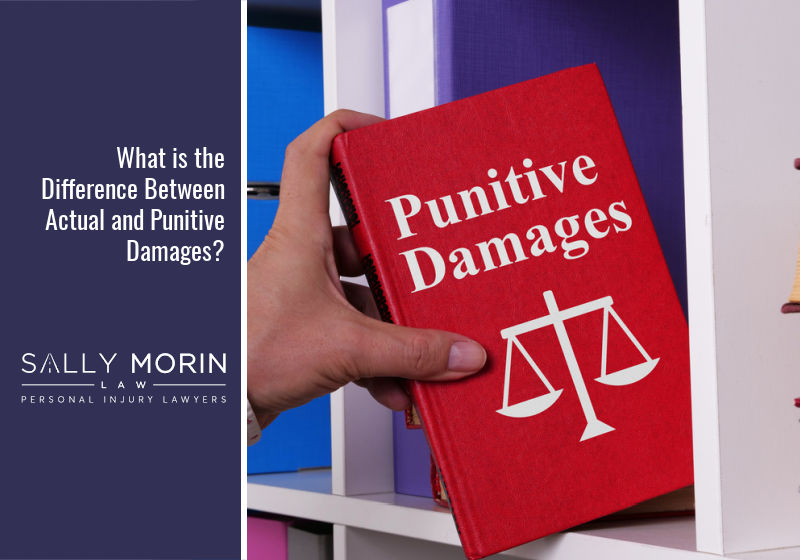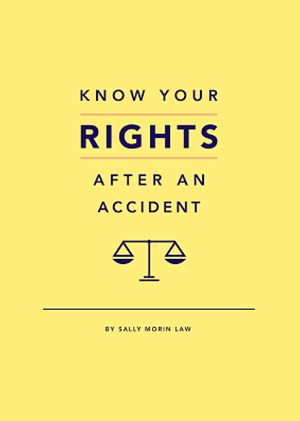What is the Difference Between Actual and Punitive Damages?
Please be advised that the following topic is for informational purposes only and not a legal matter currently handled by our firm. If you need further assistance regarding this particular topic, you can contact your local Bar Association for a referral to an attorney who may be able to address your inquiry in more detail.
When you are injured in a California car accident due to someone else’s negligence, you have the right to file a claim to recover compensation for the damages you have suffered. However, the damages you can recover can vary depending on the circumstances of the individual accident. Generally, these damages are categorized in one of two ways, actual damages or punitive damages.
Actual vs. Punitive Damages
Actual damages serve the purpose of helping the victim (plaintiff) recover from the things they have suffered as a result of the accident. Also referred to as compensatory damages, these damages are awarded in the form of monetary compensation that covers things such as medical expenses, lost wages, and property damage. Actual damages can also cover things the victim has suffered that don’t have a monetary value, such as pain & suffering and emotional distress.
In contrast, punitive damages are awarded to the victim to punish the at-fault party (defendant) for their wrongdoing. However, this does not mean that the victim can file for punitive damages any time someone else is at fault for an accident. Punitive damages are only for when the at-fault party had malicious intent or was exhibiting highly reckless behavior.
So, actual damages are awarded to the victim for their losses, whereas punitive damages are awarded to the victim as a way to punish the wrongdoer and deter dangerous conduct in the future.
How Are Punitive Damages Awarded?
Under California Civil Code 3294, a jury can award punitive damages to the plaintiff in a personal injury case, but there are some things that the plaintiff must first prove. First, to be awarded punitive damages, the plaintiff must show that the defendant acted with malicious, oppressive, or fraudulent intent.
California Code defines malicious, oppressive, and fraudulent intent as follows:
- Malicious: The purposeful intent to cause harm or despicable conduct carried out with willful and conscious disregard for the safety of others.
- Oppressive: Despicable conduct that subjects another to cruel and unjust hardship with a disregard for that person’s rights.
- Fraudulent: Intentional deceit and misrepresentation or done with the intent to deprive a person of their legal rights.
The second thigh the plaintiff must do is be able to show the above using clear and convincing evidence. For actual damages, the plaintiff only needs to prove their case using a preponderance of evidence, which means that they must simply show that the defendant is more likely than not at fault.
With punitive damages, however, the plaintiff must prove malicious, oppressive, or fraudulent intent using clear and convincing evidence. This means the evidence must show that it is highly or substantially likely that the defendant acted with malice, oppression, or fraud. In other words, there must be a high degree of probability.
How Are Punitive Damages Calculated?
The amount of punitive damages awarded can vary from case to case as there is no set standard. Instead, the jury will carefully review the evidence and make a decision whether to award punitive damages and how much to award based on these three factors:
- The degree of reprehensible conduct committed by the defendant
- Whether there is a relationship between the amount of punitive damages and the harm done to the plaintiff
- How much seems like a reasonable amount to punish the defendant and discourage them from committing wrongful acts in the future—taking their financial situation into consideration.
It’s also important to note that while California does not place a cap or a limit on how much punitive damages can be awarded, the Fourteenth Amendment does prohibit imposing grossly excessive punishments. In most cases, there must be a reasonable relationship between the punitive damages and the compensatory damages.
We Handle Your Car Accident Claim So You Can Focus On Your Life

If you were injured in a car accident in California and believe the at-fault party acted with malicious, oppressive, or fraudulent intent, our law firm can assist you. Providing clear and convincing evidence to receive punitive damages is not easy. These types of damages are not awarded lightly. So you will need the help of a lawyer to prove your case.
At Sally Morin, we have years of experience handling complex legal cases involving punitive damages. We know what it takes to ensure our clients get the full and fair compensation they deserve. Call us at 877-380-8852 or contact us online today for a free case evaluation.











